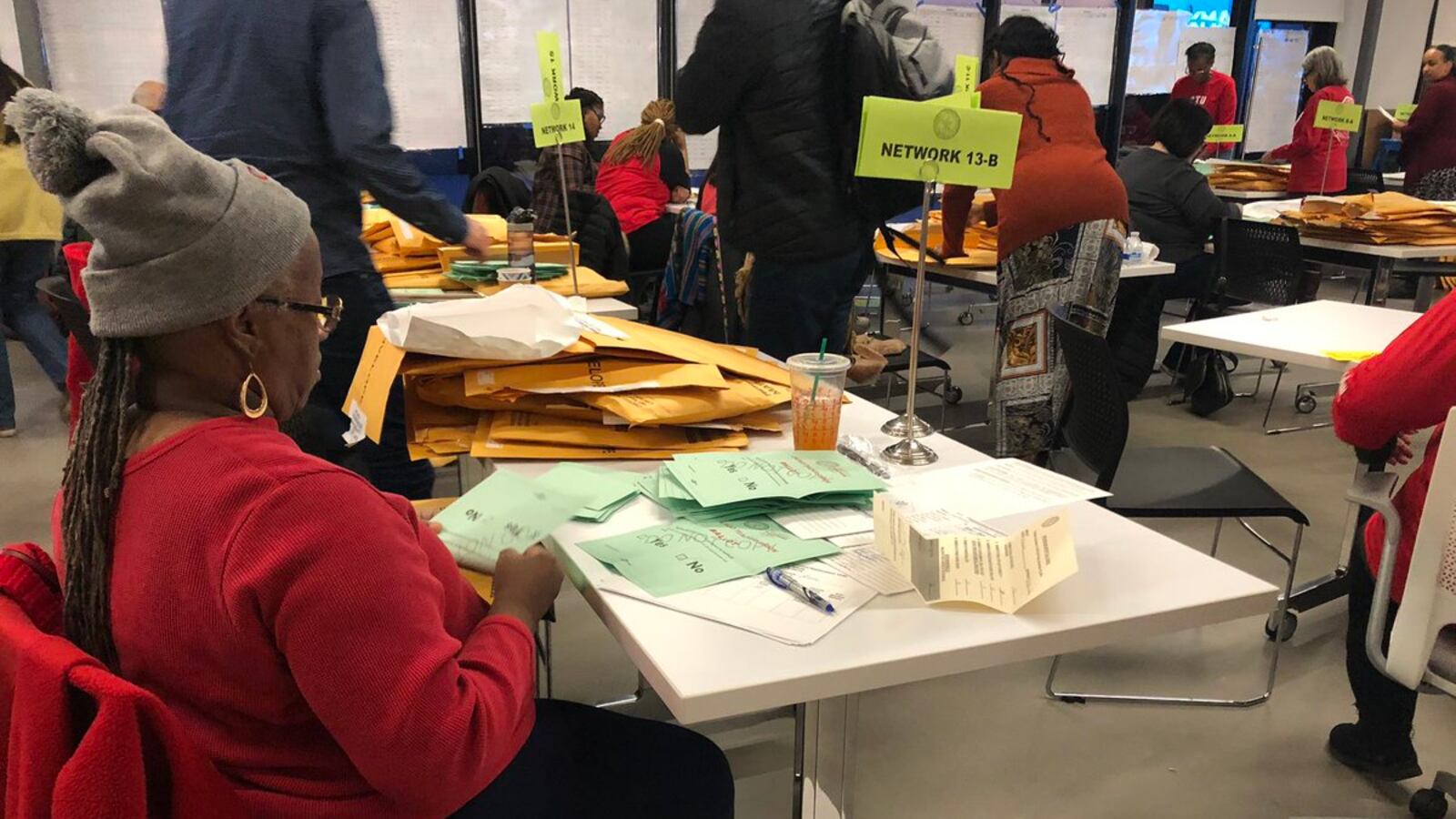Chicago teachers have voted overwhelmingly to ratify a new five-year agreement, the union said Friday, staving off fears that dissatisfaction with the compromise deal might prompt teachers to walk off the job again.
The final margin was 81% to 19%, with 80% of schools reporting late Friday. Teachers mostly voted in their schools by secret ballot Thursday, with some casting ballots Friday morning. Delegates collected paper votes at schools and delivered them downtown to union headquarters.
The contract agreement, reached at the end of an 11-day strike and approved by the union’s 700-member House of Delegates by a 60-to-40% margin, requires one final signoff: Chicago’s Board of Education will take up the measure Wednesday morning. The board is expected to pass the contract, which will cost the district about $115 million additional this school year.
Combined with a new agreement with Service Employees International Union Local 73 — which represents custodians, bus aides, and special education classroom assistants — the district’s annual $2.6 billion in union labor costs will swell by $137 million this school year.
The school board met this past week to hear about the financial implications of the agreements, and some members raised questions about how the district would pay for years two through five.
On Friday night on the fifth floor of union headquarters, two dozen volunteers and union staff counted green paper votes where teachers had anonymously checked a box for “yes” or “no.” School tallies were registered on large sheets on the wall.
Union President Jesse Sharkey, watching the vote being tallied Friday evening, said he thought contract passage was likely, even though there was dissent among the ranks.
“Do I feel like we got everything we deserved for the schools? No,” he said. “And I hope our members aren’t satisfied. I’m not happy that we gave up six days pay in order to get a nurse in every school. But I do feel proud of our union and what it accomplished, and I think our members feel proud that we really moved the needle on conditions in our schools.”
Since the strike ended, teachers have reported mixed feelings about the contract, which put the city’s new mayor, Lori Lightfoot, in an uncomfortable national spotlight just months into her term. The union said all along it wanted more than pay increases for its members and demanded that the school district, which is overseen by a board and school chief who are appointed by the mayor, invest millions more into additional staffing at schools, class size reductions, and pay raises for aides and clerks who also play critical roles in buildings and are generally low paid.
The union also attempted to use negotiations to pressure the mayor to support its legislative agenda, win more preparation time for elementary teachers, and enact a moratorium on school closings in a district with falling enrollment. But the district fought those initiatives back.
In the end, teachers succeeded in seeing hundreds more staff positions, from nurses to social workers to additional teachers for English learners, written into the contract. They also won substantial pay increases for aides and other support staff, with some immediate bumps of 9% a year. They also won a substantial pot of money, some $35 million a year, to be used for a committee that has jurisdiction over reducing overcrowding, most likely by supplying teachers’ aides.
Teachers themselves also earned a cost-of-living raise on top of the raises they already receive for experience and additional credentialing — 16% across five years. But that was the pay deal on the table before the walkout, and, after the 11-day strike ended with the city only agreeing to make up five days of instruction, teachers said they effectively lost the value of their raises by taking pay cuts for the days not paid.
Experienced teachers also reported dissatisfaction with fuzzy details over veteran pay and how raises for teachers with 14 years of experience or more will be parceled out. The union and district still have not reached agreement on whether the raises will be built into the salary schedule or issued as bonuses, Sharkey said Friday evening.
“I would have loved to have that worked out by now,” he said. “At the very worst, people are going to get some extra pay. At the best, we can do that in a way that actually increases the base (salary). We’re going to have to keep fighting with the board about that.”
On Wednesday, the school board will also vote on a revised 2019-20 school calendar that includes five make-up days from the strike. The district plans to reinstate days from part of Thanksgiving and winter break.


